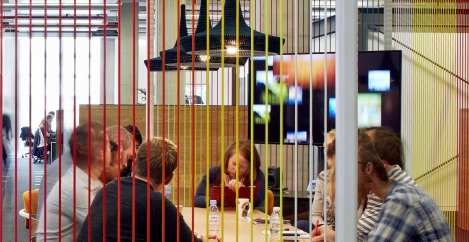September 30, 2025
Mandates fail to bring people back to the office, but design and flexibility might
 Rigid return-to-office mandates are doing little to increase attendance, according to new research from international design practice Hassell. The firm’s latest Workplace Futures Survey, titled The Mandate Mirage, suggests that the real motivator for people to work in person is choice, particularly when supported by offices designed to offer more than just a desk. The sixth edition of the survey, which polled 3,000 office workers across the UK, US, Australia, Singapore, Hong Kong and South Korea, finds that strict policies are more likely to generate dissatisfaction than compliance. In the UK, poorly executed mandates cut compliance by up to 41 percent, while organisations that offered bonuses or travel subsidies saw attendance increase by a third. Recently renovated offices also boosted in-person working by 15 percent.
Rigid return-to-office mandates are doing little to increase attendance, according to new research from international design practice Hassell. The firm’s latest Workplace Futures Survey, titled The Mandate Mirage, suggests that the real motivator for people to work in person is choice, particularly when supported by offices designed to offer more than just a desk. The sixth edition of the survey, which polled 3,000 office workers across the UK, US, Australia, Singapore, Hong Kong and South Korea, finds that strict policies are more likely to generate dissatisfaction than compliance. In the UK, poorly executed mandates cut compliance by up to 41 percent, while organisations that offered bonuses or travel subsidies saw attendance increase by a third. Recently renovated offices also boosted in-person working by 15 percent.
The research highlights the growing importance of workplaces that feel like destinations rather than obligations. Offices with wellness areas, outdoor spaces, dining options and cultural or retail amenities see significantly higher attendance than those without. Hassell’s study notes that the basics such as meeting rooms, reliable technology and comfortable work areas are no longer enough. Workers are drawn to environments that combine convenience and experience, from bike facilities and showers to curated social events.
The report also captures the accelerating impact of AI on the workplace. Weekly use of AI in the UK rose from 43 percent in 2024 to 57 percent in 2025, reshaping how offices are planned. With routine desk-based tasks increasingly automated, the study predicts a shift towards fewer individual workstations and more collaboration hubs and flexible spaces.
Among the key findings:
-
Forty-two percent of UK employees remain hybrid, compared with 47 percent fully office-based and 11 percent fully remote.
-
Incentives raised compliance by 32 percent, while premium offices saw half of staff choosing to attend in person compared with just 22 percent in lower-quality spaces.
-
Amenities such as green areas, gyms and networking opportunities were identified as decisive factors in attendance.
Dr Daniel Davis, Hassell’s Head of Research, said: “Our UK research shows that simply mandating people back to the office doesn’t work. What does work is creating workplaces worth the commute, spaces that combine functionality with experience, supported by clear, positive policies.”















